Patri Friedman
description: American libertarian activist and theorist of political economy
16 results
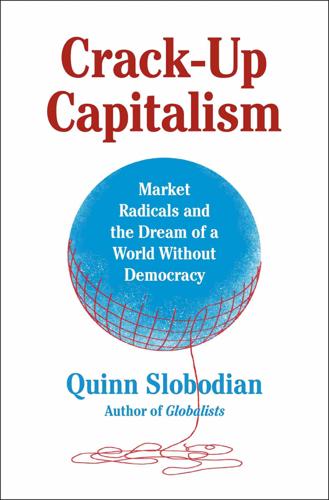
Crack-Up Capitalism: Market Radicals and the Dream of a World Without Democracy
by
Quinn Slobodian
Published 4 Apr 2023
Deist, “Soft Secession in America.” 39. Hari Kunzru, Red Pill (New York: Knopf, 2020), 226. CHAPTER 1: TWO, THREE, MANY HONG KONGS 1. Patri Friedman, “TSI Strategy & Status: The Future” (speech), Seasteading Institute Conference, September 29, 2009, San Francisco, CA, video, 26:42, https://vimeo.com/8354001. 2. Patri Friedman, “Beyond Folk Activism,” Cato Unbound, April 6, 2009, https://www.cato-unbound.org/2009/04/06/patri-friedman/beyond-folk-activism. 3. Patri Friedman and Brad Taylor, “Seasteading: Competitive Governments on the Ocean,” Kyklos 65 (May 2012): 225. 4. Friedman and Taylor, “Seasteading,” 230. 5.
…
His proposal: repurpose offshore oil rig technology and set up settlements beyond the jurisdiction of terrestrial states, homesteading the high seas.3 Beyond the “exclusive economic zone” that stretches two hundred miles out from every country’s shore, the open ocean was free for private exploitation and political experimentation. “Seasteads” would escape the taxing and regulating state, declare independence, and spark what he dubbed a “Cambrian Explosion in government.”4 In the jargon of Silicon Valley, these would be start-up nations. The man onstage was Patri Friedman. He had a famous grandfather, perhaps the century’s most notorious economist, both lionized and reviled for his role in offering intellectual scaffolding for ever more radical forms of capitalism and for his sideline in advising dictators: Milton Friedman. The two shared a basic lack of commitment to democracy.
…
You wear the period clothing, get blisters on your hands from the sword, prepare and eat the medieval food. In the same way, the historical LARPing of anarcho-capitalists had real-world outcomes. They invite us to speculate but to do so concretely—to play for real. An example of this was David’s son, Patri Friedman—named after his father’s fellow creative anachronist, a Harvard history of science PhD who went by the name Patri du Chat Gris. Patri attended the Pennsic Wars in his youth, and later became a fan of the celebrated Burning Man cultural festival in the Nevada desert. He reveled in the ingenuity and creativity of the participants who made “two-mile-long laser images … visible from space in a dusty environment” and not one but two “forty-foot-long fire-breathing dragon cars.”62 But he had one complaint: there was no commerce permitted at the event.
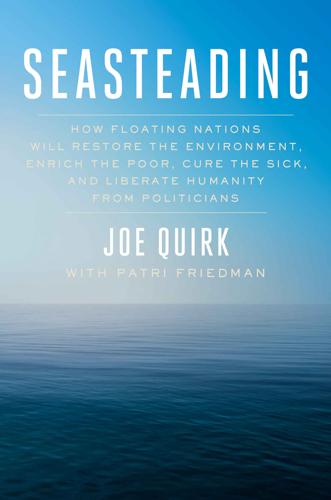
Seasteading: How Floating Nations Will Restore the Environment, Enrich the Poor, Cure the Sick, and Liberate Humanity From Politicians
by
Joe Quirk
and
Patri Friedman
Published 21 Mar 2017
Over the last decades, there has been a shift from top down hierarchical steering (government) towards more network driven decentralized forms of policy making with multiple actors (governance). Floating cities offer an opportunity to take this development a step further.” Has Rutger heard of Patri Friedman? Rutger strains to remember. “I read about Patri Friedman in the Economist Science Technology section. Was it published this year?” Joe had to finally break down and tell them about all the aquapreneurs who are already making progress on all these fronts. Ricardo Radulovich wants to use seaweed to create food; Lissa Morgenthaler-Jones wants to use microalgae to create fuel; Neil Sims talks about using algae to decrease the acidity of the ocean; Patrick Takahashi pitches ocean thermal energy conversion as an energy source and calls his effort the Blue Revolution; and Patri Friedman talks about how rearrangeability of floating buildings will create a peaceful market of competitive governance.
…
Quirk coleads a team working to establish the first seastead with unprecedented political autonomy in the waters of a host nation. He lives in Oakland, California. PATRI FRIEDMAN founded The Seasteading Institute in 2008 with seed funding from PayPal founder Peter Thiel. He also founded the annual Ephemerisle floating festival. Friedman, the grandson of economist Milton Friedman, currently works at Google, runs a micro–venture capital fund, and lives with his family in San Jose, California. Visit the authors at www.seasteading.org MEET THE AUTHORS, WATCH VIDEOS AND MORE AT SimonandSchuster.com Authors.SimonandSchuster.com/Joe-Quirk Authors.SimonandSchuster.com/Patri-Friedman ALSO BY JOE QUIRK Exult Call to the Rescue: The Story of the Marine Mammal Center It’s Not You, It’s Biology: The Science of Love, Sex, and Relationships The Ultimate Rush We hope you enjoyed reading this Simon & Schuster ebook
…
The bottomless source of solutions, as author Julian Simon argues in his classic book The Ultimate Resource, is human creativity. What would you do with political freedom, almost limitless energy, and nearly half the Earth’s surface? See the Sea The globally emerging Blue Revolution became conscious of itself when Google engineer Patri Friedman realized that the economic theories elucidated by his grandfather, Milton Friedman, and developed by his father, David Friedman, would soon be put to the test by a rapidly approaching technology. Milton and David each asserted that political conflict was caused by political power, and that the solution to political conflict lay not in further consolidating power in the most virtuous government officials, but by the radical decentralization of power among millions of individuals with freedom and choice.
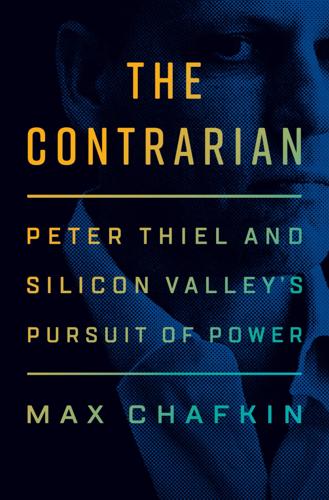
The Contrarian: Peter Thiel and Silicon Valley's Pursuit of Power
by
Max Chafkin
Published 14 Sep 2021
run-up to the vote: Molly Ball, “The Little Group behind the Big Fight to Stop Immigration Reform,” The Atlantic, August 1, 2013, https://www.theatlantic.com/politics/archive/2013/08/the-little-group-behind-the-big-fight-to-stop-immigration-reform/278252/. “an embrace of freedom”: Owen Thomas, “Billionaire Facebook Investor’s Anti-immigrant Heresy,” Valleywag, November 14, 2008, https://gawker.com/5083655/billionaire-facebook-investors-anti-immigrant-heresy. start new ones: Patri Friedman, “Beyond Folk Activism,” Cato Unbound, April 6, 2009, https://www.cato-unbound.org/2009/04/06/patri-friedman/beyond-folk-activism. calibrated to cause a reaction: Peter Thiel, “The Education of a Libertarian,” Cato Unbound, April 13, 2009, https://www.cato-unbound.org/2009/04/13/peter-thiel/education-libertarian. “terrorists, not writers and reporters”: Peter Kafka, “Why Did Nick Denton Think Peter Thiel Was behind the Hulk Hogan Suit?”
…
Now, having lost most of his investors’ money, having given up on trying to hide his secrets, he could follow his intellectual passions and, once again, play the role of provocateur. At Stanford, Thiel had gravitated toward younger right-wing intellectuals and he did so again, beginning with a Google engineer named Patri Friedman. Small, sinewy, and handsome, Friedman had a master’s degree in computer science from Stanford, which he was putting to work writing quality control software for Google while experimenting with exhibitionist alternative lifestyles. He’d explored pickup artistry, acrobatics, professional poker, paleo diets, communal living, and polyamory—blogging about all of it.
…
NPR ran a tongue-in-cheek report that began with joking promotional copy: “Tired of the rat race and following all the rules imposed by the man? Tired of being denied the opportunity to live on a floating ocean capsule?” host Mike Pesca asked. Gawker mocked Freidman relentlessly, mining his confessional blog and social media stream for the most ridiculous bits of inanity. libertarian utopianist patri friedman wants to be your baby’s daddy was one headline in reference to his polyamory. Clarium employees expected Thiel to be horrified by the attention. “For years we’d been trying to suppress stuff, but at a certain point he just didn’t care,” said a former employee, referring to efforts to quash negative press.
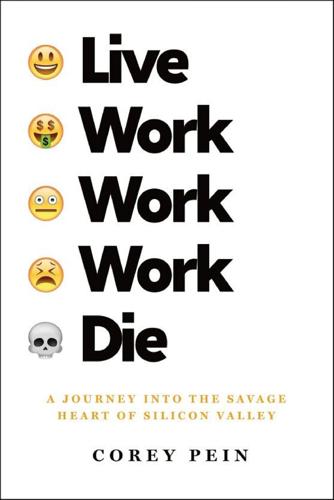
Live Work Work Work Die: A Journey Into the Savage Heart of Silicon Valley
by
Corey Pein
Published 23 Apr 2018
In less than a decade, the loosely federated movement of neoreactionary writers had grown to the point where the project could survive the loss of any one voice, and in another few years, this strange and seemingly antisocial movement would even establish a beachhead in the White House. An early sign of the mainstreaming of this esoteric school came from Patri Friedman, a grandson of the famed economist Milton Friedman. In early 2014, the young, libertine free market scion praised Moldbug for inspiring “an entire school of red pill political philosophy.” Friedman wanted to improve the image of neoreaction by using TV-ready, buzzword-laden euphemisms like “competitive governance” rather than referring directly to the Moldbuggian ideal of corporate dictatorship.
…
I quickly typed it off,” he told the blogger Tyler Cowen in a 2015 interview. All the same, Thiel said, “You could never disown anything that you’ve written.” * * * The rise of the neoreactionaries was not exclusively a coup orchestrated from above with the help of powerful, well-connected hyperlibertarians like Thiel, Patri Friedman, and Trump’s campaign financier, the tech billionaire Robert Mercer. It was also a movement from below, embraced by thousands—and eventually perhaps by millions—of disaffected young people. While the neoreactionaries expounded at tiresome length about their aims, they revealed their individual motivations only in glimpses.
…
The bearded British life extension researcher Aubrey de Grey spoke at BIL that year about his work in “anti-aging bioscience.” De Grey whiled away most of his days at the Thiel-funded, Mountain View–based SENS Research Foundation, a nonprofit organization also dedicated to the quixotic cause of achieving human immortality. Yarvin booster Patri Friedman led an organization called the Seasteading Institute, which was also funded by Thiel, with the outlandish goal of building privately owned countries on large offshore platforms. Fortune magazine in 2014 described Thiel, the aggrieved chess club president and Tolkien obsessive, as “perhaps America’s leading public intellectual.”
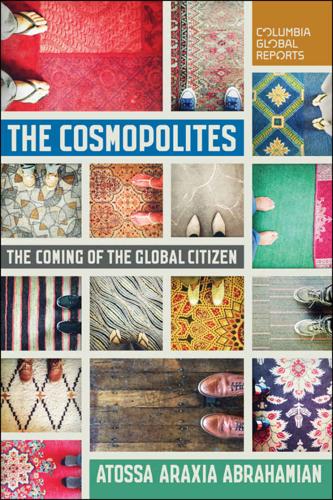
The Cosmopolites: The Coming of the Global Citizen
by
Atossa Araxia Abrahamian
Published 14 Jul 2015
But the organization operates on the philosophy that the nation-state and national citizenship should by now be obsolete, and that people ought to “vote with their feet” and decide what kind of government (and tax regime) they want to live under. Since the oceans are technically international territory, little prevents wannabe nation-builders from establishing their own territories in this no-man’s land, if they can physically hack it. Patri Friedman, the grandson of economist Milton Friedman, runs the organization, and in doing so effectively takes the elder Friedman’s radical free-market philosophy to its logical, if absurd, conclusion. “There’s a sense in which seasteading is an engineering solution to the problems of politics, and that’s really appealing to tech people,” Friedman told me in 2012.
…
“Globalization is proving right Adam Smith’s observation that while ‘the proprietor of land is necessarily a citizen of the particular country in which his estate lies . . . the proprietor of stock is properly a citizen of the world, and is not necessarily attached to any particular country.’” Roger Ver, Patri Friedman, and Eduardo Saverin have this in common: They chose to opt out. The “financialization” of citizenship isn’t just a problem for traditionalists like Huntington. It’s also a disturbing trend for supporters of participatory democracy, social welfare programs, and wealth redistribution. Peter Spiro, a legal scholar at Temple University and the author of several books on citizenship law, situates the breakdown of national citizenship in a broader context of mounting income and wealth inequality within nations.
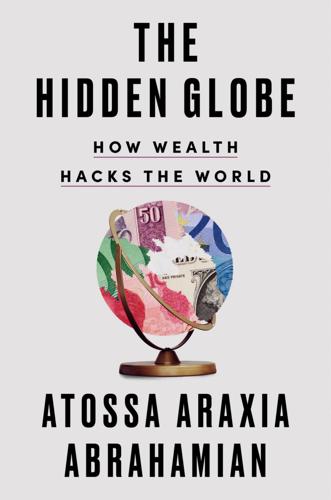
The Hidden Globe: How Wealth Hacks the World
by
Atossa Araxia Abrahamian
Published 7 Oct 2024
I started following Próspera from the outset, expecting, over and over, that it would fail. Honduras was too volatile. The idea was too wacky. The citizens of Roatán, according to news reports, did not seem wild about the prospect. And the people involved seemed, to me at least, to have their heads in the clouds. Take Patri Friedman, who was responsible for popularizing charter cities in the Bay Area and has raised money from tech founders and venture capitalists. I first spoke to Friedman in 2012, when he was leading the Seasteading Institute, which promoted the development of artificial, floating nation-states on the high seas.
…
Jorge Colindres, Próspera’s technical secretary—a governor nominated by the developers but officially appointed by the Honduran state—says the jurisdiction’s plans to build and grow have not changed. In the meantime, the fledgling city hosts wellness retreats, cryptocurrency confabs, and a conference on experimental ways to achieve longevity (having solved the problem of taxes, the only thing left, apparently, is death). Patri Friedman flew down to receive injections of follistatin, a novel form of gene therapy, yet to be approved by the U.S. Food and Drug Administration, that is purported to help muscles grow and to slow the aging process. He told me he was thrilled with the results. The founders of the company offering it, Minicircle, tested it on themselves before turning to Próspera, where taxes are lower and there is no onerous regulatory process as in the United States.
…
That conversation was the last of dozens, possibly hundreds, I’ve had about charter cities and related projects, beginning in 2012. These discussions took place at conferences, through phone calls and Zooms, and during in-person interviews around the world. I’m particularly grateful to Joseph McKinney, Thibault Serlet, Katarina Serlet, Joe Quirk, Patri Friedman, Michael Strong, Randy Hencken, Kurtis Lockhart, Mark Lutter, the Charter Cities Institute, Gustavo Lacerda, Michael Castle-Miller, Jorge Colindres, William O’Shea, Joel Burke, Nick Dranias, Humberto Macias, and all the Próspera publicists I’ve ever known for taking the time to talk to me about their project, as well as everyone else I met through the seasteading/charter cities universe.
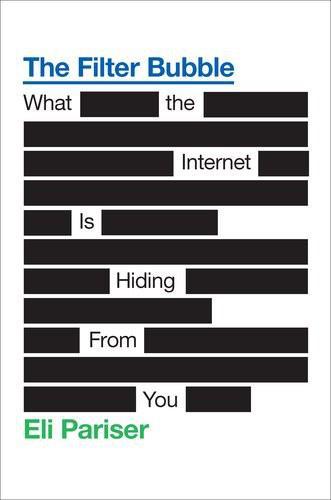
The Filter Bubble: What the Internet Is Hiding From You
by
Eli Pariser
Published 11 May 2011
His comments raise the question of what kind of change Thiel would like to see. While many billionaires are fairly circumspect about their political views, Thiel has been vocal—and it’s safe to say that there are few with views as unusual as Thiel’s. “Peter wants to end the inevitability of death and taxes,” Thiel’s sometime collaborator Patri Friedman (grandson of Milton) told Wired. “I mean, talk about aiming high!” In an essay posted on the libertarian Cato Institute’s Web site, Thiel describes why he believes that “freedom and democracy are no longer compatible.” “Since 1920,” he writes, “the vast increase in welfare beneficiaries and the extension of the franchise to women—two constituencies that are notoriously tough for libertarians—have rendered the notion of ‘capitalist democracy’ into an oxymoron.”
…
Catalist categories, wide censorship Chait, Jon China Internet police in Pabst in CIA CineMatch cities architecture and design in Clarium click signals Clinton, Bill cloud Coca-Cola Village Amusement Park code and programmers coding, conceptual Cohen, Claudia Cohler, Matt Coleman, Gabriella collaborative filtering confirmation bias Conley, Dalton cookies Cortés, Hernán Coyne, Chris craigslist creativity and innovation credit reports Cropley, Arthur curators, see editors and curators curiosity cybernetics DARPA data laundering dating sites OkCupid day-parting De Castro, Henrique defaults democracy dialogue and design and architecture Dewey, John dialogue Digg DirectLife discovery disintermediation Dixon, Pam DNA Do Not Track list Dostoyevsky, Fyodor Downey, Tom Duncker, Karl Dyson, Esther EchoMetrix Eckles, Dean EdgeRank editors and curators Eliza e-mail constitutional protections and Gmail engineers Erowid Europe evolution Eysenck, Hans Facebook advertisements and EdgeRank and Everywhere Google and identity and Like button on local-maximum problem and lock-in and News Feeds on political advertising and political involvement and privacy policy of Twitter compared with facial recognition Fair Credit Reporting Act Fair Information Practices Fallows, James Farah, Martha FBI Flatow, Alfred Foer, Josh Foisie, Philip Founder’s Fund Foursquare France Fried, Charles Friedman, Patri Friedman, Tom friendly world syndrome Friendster From Counterculture to Cyberculture (Turner) fundamental attribution error Gawker geeks Gelernter, David Gellman, Robert genetic data Gerbner, George Gibson, William Gilbert, Dan Glass, Ira Gmail Google China and dashboard of digitized books and Docs “Don’t be evil” slogan of ethics and Facebook and facial recognition and Gmail Instant lock-in and News Oceana and PageRank Picasa political advertising and political involvement and Reader Research search algorithm of Translate Voice government Graber, Doris gun registration Habermas, Jurgen Hackers (Levy) hackers, hacking Hare, Brian Harris, Vincent Hastings, Reed Hauser, John Hayes, Gary Heiferman, Scott Heuer, Richards Hillis, Danny Hoekstra, Pete Huffington Post humanlike agents Hume, David IBM identity identity loops induction infomercials information gap Inglehart, Ron Institute intelligent agents Interactive Advertising Bureau (IAB) iPhone IQ Iraq i-traffic iTunes Iyengar, Shanto jet pilots Jiang Zemin Jobs, Steve Johnson, Steven Joy, Bill Kaczinski, Ted Kafka, Franz Kalathil, Shanthi Kane, Patrick Kantorovich, Aharon Katona, George Kayak Kazmaier, Dick Kekule, Friedrich Keller, Bill Kelly, Kevin Kennedy, John F.

Survival of the Richest: Escape Fantasies of the Tech Billionaires
by
Douglas Rushkoff
Published 7 Sep 2022
sh =675141ef6ad6. 19 real estate agents specializing in private islands : Heather Murphy, “The Island Brokers Are Overwhelmed,” New York Times , October 9, 2020, https:// www .nytimes .com /2020 /10 /09 /realestate /private -islands -coronavirus .html. 19 Cancer-causing microplastics : Jamie Wheal, Recapture the Rapture: Rethinking God, Sex, and Death in a World That’s Lost Its Mind (New York: HarperCollins, 2021). 19 World Wide Fund for Nature study : Wijnand de Wit and Nathan Bigaud, “No Plastic in Nature: Assessing Plastic Ingestion from Nature to People,” World Wide Fund for Nature, 2019, https:// d2ouvy59p0dg6k .cloudfront .net /downloads /plastic _ingestion _web _spreads .pdf. 21 “aquapreneurs” : Joe Quirk and Patri Friedman, Seasteading: How Floating Nations Will Restore the Environment, Enrich the Poor, Cure the Sick, and Liberate Humanity from Politicians (New York: Free Press, 2017). 21 humanity’s return to the sea : “Busan UN Habitat and OCEANIX Set to Build the World’s First Sustainable Floating City Prototype as Sea Levels Rise,” UNHabitat.org, November 18, 2021, https:// unhabitat .org /busan -un -habitat -and -oceanix -set -to -build -the -worlds -first -sustainable -floating -city -prototype -as. 21 “To establish permanent” : https:// www .seasteading .org. 21 “We’ve had the agricultural revolution” : https:// www .seasteading .org.
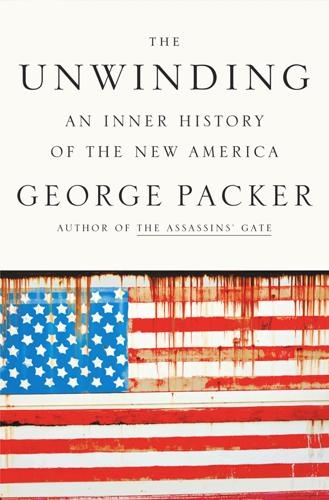
The Unwinding: An Inner History of the New America
by
George Packer
Published 4 Mar 2014
When a friend told Thiel about a reality TV show in which ugly women’s lives were changed by extreme makeovers such as plastic surgery, liposuction, and tooth whitening, he became excited and wondered what other technologies were available to transform the human body. He was the largest patron and a board member of the Seasteading Institute, a libertarian nonprofit group founded by Patri Friedman, a former Google engineer and Milton Friedman’s grandson. “Seasteading” referred to the founding of new city-states on floating platforms in international waters—communities beyond the reach of laws and regulations. The goal was to create more minimalist forms of government that would force existing regimes to innovate under competitive pressure.
…
There was Eliezer Yudkowsky, an artificial-intelligence researcher who had cofounded the Singularity Institute—an autodidact who never went past eighth grade, he was the author of a thousand-page online fanfic called Harry Potter and the Methods of Rationality, which recast the original story in an attempt to explain Harry’s wizardry through the scientific method. And there was Patri Friedman, the founder of the Seasteading Institute. An elfin man with cropped black hair and a thin line of beard, he was dressed in the eccentrically antic manner of Raskolnikov. He lived in Mountain View in an “intentional community” as a free-love libertarian, about which he regularly blogged and tweeted: “Polyamory/competitive govt parallel: more choice/competition yields more challenge, change, growth.
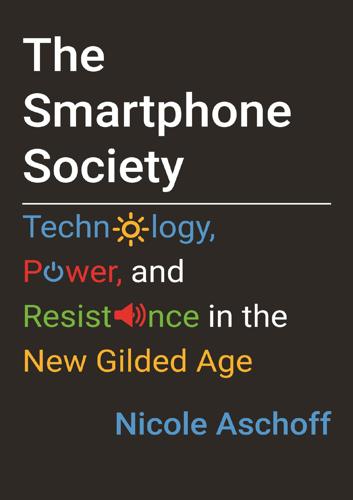
The Smartphone Society
by
Nicole Aschoff
It’s the best model for getting things done and bringing your vision to the world.”24 Zuckerberg’s sentiment echoes Electronic Frontier Foundation founding member John Perry Barlow’s oft-cited manifesto: “Governments of the Industrial World, you weary giants of flesh and steel, I come from Cyberspace, the new home of Mind. On behalf of the future, I ask you of the past to leave us alone. You are not welcome among us. You have no sovereignty where we gather.”25 Peter Thiel shares Zuckerberg’s and Barlow’s desire for autonomy and space to build new Utopias. He’s bankrolling Patri Friedman’s Seasteading Institute, whose aim is to build floating cities similar to oil rigs that would be anchored in international waters and so be free of the laws, regulations, and by extension, the norms and customs of landlubbers (Patri is the grandson of the neoliberal guru Milton Friedman). Perhaps following in the footsteps of Henry Ford’s model city, Fordlandia, built in the Brazilian state of Pará, Microsoft purchased twenty-five thousand acres in Arizona to build the City of the Future, while Page has invested in research on the feasibility of privately owned city-states.26 More recently Jeffrey Berns, a cryptocurrency millionaire, bought a chunk of land in Nevada bigger than Reno to build a Utopian blockchain community.
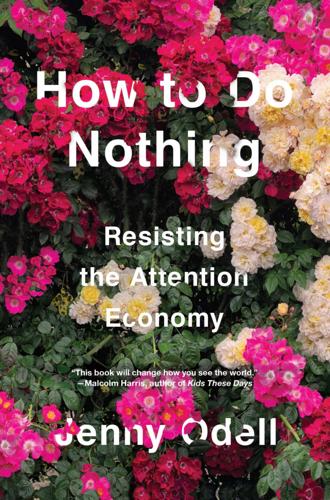
How to Do Nothing
by
Jenny Odell
Published 8 Apr 2019
But the problems he lists are decidedly scientific: “exhaustion of resources, the pollution of the environment, overpopulation, and the possibility of a nuclear holocaust”—he mentions neither the Vietnam War nor the ongoing struggles over racial equality.35 Even in 1976, the remaining question for Skinner was not how power could be redistributed, or injustice redressed, but how a technical problem might be solved with the very same methods as the Skinner box: “How were people to be induced to use new forms of energy, to eat grain rather than meat, and to limit the size of their families; and how were atomic stockpiles to be kept out of the hands of desperate leaders?” He proposed avoiding politics altogether and working instead on “the design of cultural practices.”36 To him, the late twentieth century was an exercise in R&D. The kind of escape that Walden Two embodies reminds me of a more recent utopian proposal. In 2008, Wayne Gramlich and Patri Friedman founded the nonprofit the Seasteading Institute, which seeks to establish autonomous island communities in international waters. For Silicon Valley investor and libertarian Peter Thiel, who supported the project early on, the prospect of a brand-new floating colony in a place outside the law was interesting indeed.
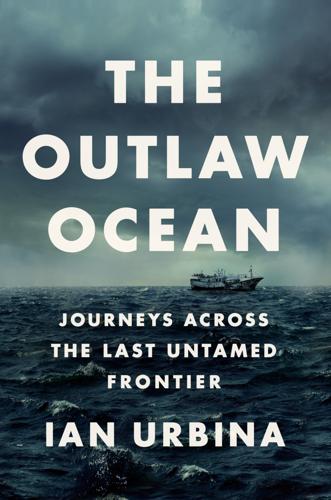
The Outlaw Ocean: Journeys Across the Last Untamed Frontier
by
Ian Urbina
Published 19 Aug 2019
Who, for example, would subsidize basic services (the ones usually provided by the tax-funded government that seasteading libertarians sought to escape)? Keeping the lights on and protecting against piracy would be expensive. In 2008, these visionaries united around a nonprofit organization called the Seasteading Institute. Based in San Francisco, the organization was founded by Patri Friedman, a Google software engineer and grandson of Milton Friedman, the Nobel Prize–winning economist best known for his ideas about the limitations of government. The institute’s primary benefactor was Peter Thiel, a billionaire venture capitalist and the co-founder of PayPal who donated more than $1.25 million to the organization and related projects.
…
They were often called seasteads: My full bibliography on seasteading is as follows: Jerome Fitzgerald, Sea-Steading: A Life of Hope and Freedom on the Last Viable Frontier (New York: iUniverse, 2006); “Homesteading the Ocean,” Spectrum, May 1, 2008; Oliver Burkeman, “Fantasy Islands,” Guardian, July 18, 2008; Patri Friedman and Wayne Gramlich, “Seasteading: A Practical Guide to Homesteading the High Seas,” Gramlich.net, 2009; Declan McCullagh, “The Next Frontier: ‘Seasteading’ the Oceans,” CNET News, Feb. 2, 2009; Alex Pell, “Welcome Aboard a Brand New Country,” Sunday Times, March 15, 2009; Brian Doherty, “20,000 Nations Above the Sea,” Reason, July 2009; Eamonn Fingleton, “The Great Escape,” Prospect, March 25, 2010; Brad Taylor, “Governing Seasteads: An Outline of the Options,” Seasteading Institute, Nov. 9, 2010; “Cities on the Ocean,” Economist, Dec. 3, 2011; Jessica Bruder, “A Start-Up Incubator That Floats,” New York Times, Dec. 14, 2011; Michael Posner, “Floating City Conceived as High-Tech Incubator,” Globe and Mail, Feb. 24, 2012; Josh Harkinson, “My Sunset Cruise with the Clever, Nutty, Techno-libertarian Seasteading Gurus,” Mother Jones, June 7, 2012; Stephen McGinty, “The Real Nowhere Men,” Scotsman, Sept. 8, 2012; Michelle Price, “Is the Sea the Next Frontier for High-Frequency Trading?
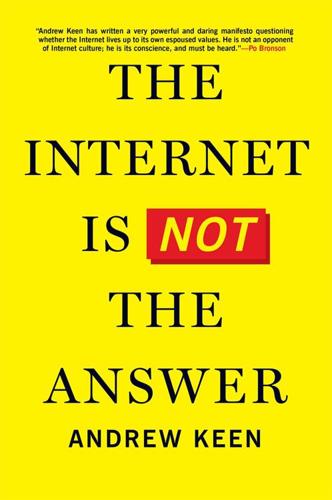
The Internet Is Not the Answer
by
Andrew Keen
Published 5 Jan 2015
“We need to build opt-in society, outside the US, run by technology,” is how he described a ridiculous fantasy that would turn Silicon Valley into a kind of free-floating island that Wired’s Bill Wasik satirizes as the “offshore plutocracy of Libertaristan.”75 And one group of “Libertaristanians” at the Peter Thiel–funded, Silicon Valley–based Seasteading Institute, founded by Patri Friedman, a former Google engineer and the grandson of the granddaddy of free-market economics, Milton Friedman, has even begun to plan floating utopias that would drift off the Pacific coast.76 Behind all these secession fantasies is the very concrete reality of the secession of the rich from everyone else in Silicon Valley.
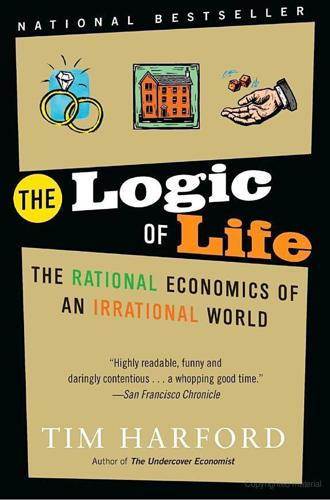
The Logic of Life: The Rational Economics of an Irrational World
by
Tim Harford
Published 1 Jan 2008
They include Robert Axtell, Gary Becker, Stefano Bertozzi, Marianne Bertrand, Darse Billings, Simon Burgess, Bryan Caplan, Philip Cook, Frank Chaloupka, Kerwin Kofi Charles, Andre Chiappori, Gregory Clark, Daniel Dorling, Lena Edlund, Paula England, Marco Francesconi, Roland Fryer, Paul Gertler, Ed Glaeser, Claudia Goldin, Joe Gyourko, Daniel Hamermesh, George Horwich, Adam Jaffe, John Kagel, Matthew Kahn, Michael Kell, Mark Kleiman, Jeff Kling, Alan Krueger, David Laibson, Steven Landsburg, Steven Levitt, John List, Glenn Loury, Rob MacCoun, Enrico Moretti, Sendhil Mullainathan, Victoria Prowse, Daniel Read, Peter Riach, Jeffrey Sachs, Saskia Sassen, Thomas Schelling, Philip A. Stevens, Thomas Stratmann, Jake Vigdor, Yoram Weiss, Justin Wolfers, Peyton Young, and Jonathan Zenilman. Equally talented and equally generous with their expertise or comments were Lee Aitken, Sam Bodanis, Dominic Camus, Anne Currell, Stephen Dubner, Chris “Jesus” Ferguson, Patri Friedman, Mark Henstridge, Diana Jackson, Howard Lederer, Philippe Legrain, Seamus McCauley, Giuliana Molinari, Dave Morris, Frazer Payne, William Poundstone, Greg Raymer, Romesh Vaitilingam, and David Warsh. Every day at the Financial Times brings me new ideas, but I particularly wish to thank my colleagues on the leader-writing team, David Gardner, Robin Harding, and Alison Smith; my FT Magazine editors, Isabel Berwick, Rosie Blau, Pilita Clark, Michael Skapinker, and Graham Watts; Chris Giles and Martin Wolf; and Lionel Barber and Dan Bogler for so quickly agreeing to give me some time to write this book.
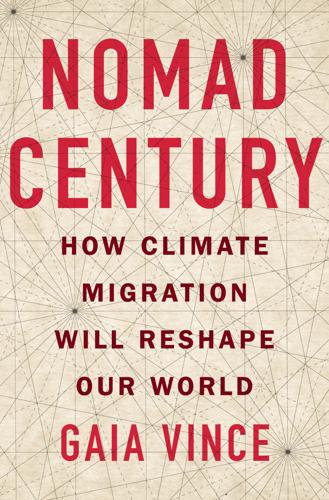
Nomad Century: How Climate Migration Will Reshape Our World
by
Gaia Vince
Published 22 Aug 2022
So far, there are just three buildings, but it plans to expand to 10,000 residents by 2025, who will need only to sign a social contract and pay a considerable membership fee, to be a part of the libertarian dream.20 The concept shares elements with the Seasteading movement, a libertarian group of mega-rich preppers intent on building independent floating cities on the high seas. The Seasteading Institute was founded in San Francisco in 2008 by anarcho-capitalist (and Google software engineer) Patri Friedman, with funding from PayPal billionaire Peter Thiel, to ‘establish permanent, autonomous ocean communities to enable experimentation and innovation with diverse social, political, and legal systems’. Some of the ideas they plan to use include harvesting calcium carbonate from seawater to create 3D-printed ‘artificial coral’ cities of upside-down skyscrapers – ‘seascrapers’ – powered by oceanic geothermal energy.
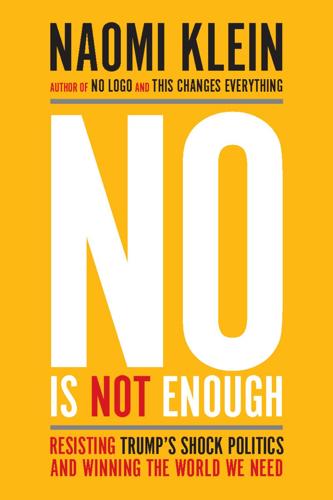
No Is Not Enough: Resisting Trump’s Shock Politics and Winning the World We Need
by
Naomi Klein
Published 12 Jun 2017
It goes without saying that you need your own private jet to get there—the ultimate Green Zone. At the ultra-extreme end of this trend is PayPal billionaire Peter Thiel, a major Trump donor and member of his transition team. Thiel underwrote an initiative called the Seasteading Institute, cofounded by Patri Friedman (grandson of Milton) in 2008. The goal of Seasteading is for wealthy people to eventually secede into fully independent nation-states, floating in the open ocean—protected from sea-level rise and fully self-sufficient. Anybody who doesn’t like being taxed or regulated will simply be able to, as the movement’s manifesto states, “vote with your boat.”